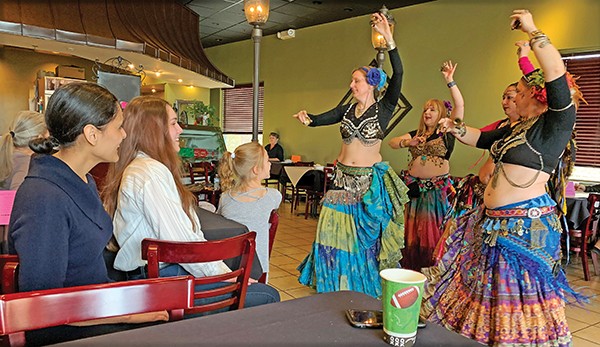Some drama was expected, but nothing like the more-than-audible gasp that exuded from the audience at Monday’s meeting of the Shelby County Commission, when Tami Sawyer articulated what was suddenly and shockingly becoming obvious:
“There will be no new machines in 2020,” said Sawyer, summarizing it all in an epiphany after an hour or so of intense debate and argument on both sides of the speakers’ dock regarding what sort of new voting machines the county should get in its long-planned buy in time for the August election cycle locally.
County Election Coordinator Linda Phillips had been making and repeating that promise of new machines for most of the last year, kindling up an ever-growing local controversy as to which type of machine. On Sunday she had published a viewpoint in The Commercial Appeal in which the following two sentences were the key ones: “Now that we are about to replace our outdated voting equipment, the controversy has reached the boiling point. I have spent my career conducting elections, and I’d like to share my viewpoint.”
 Jackson Baker
Jackson Baker
House District 97 candidate Gabby Salinas (l), one of two Democrats running, enjoys an exotic Mideastern dance in her honor at a weekend fundraiser.
Phillips’ viewpoint, as spread out over two pages in the paper, was that ballot-marking devices (BMDs) are superior to voter-marked paper ballots (VMPBs) because, she argued, they are more secure from error, though she acknowledged they were somewhat more expensive as machinery. A contrary point of view is being argued by a determined group of local voter-reform activists, who stress that the hand-marked method is cheaper and more easily checked for accuracy and that the ballot-marking devices favored by Phillips are eminently hackable.
To underscore the latter point, one of the VMPB advocates, Bennie Smith, who doubles as a Democratic member of the Shelby County Commission and styles himself an expert on voting technology, had demonstrated to a previous meeting of the commission that he could insert a predetermined vote total into a result line of the BMD machine’s paper readout.
Both kinds of machine, Phillips has pointed out, possess a “paper trail” capability allowing voters to see and approve a printout of their ballot. (Critics of BMDs, the machines employing ballot-marked devices, complain that voters are asked to base their comparison ultimately on an unintelligible bar code.)
Anyway, the verbal battle was raging as usual on Monday, though Phillips herself was absent, when everything became moot.
Prompted by commission chairman Mark Billingsley, Marcy Ingram, deputy county attorney and de facto legal adviser to commission members, announced to the assembly at large that state law — to wit, TCA 29-111 — forbade any purchase of new voting technology without a prior voter referendum.
“Yes, Mr. Chairman earlier today, we determined that in the budget, the commission has a lot of leeway to use CIP funds, general obligation bonds, to pay for the voting machines. And there’s a statute on the books that’s about 15 years old that says that if you use general obligation bonds you do have to put it out to the voters to let them decide whether or not this is appropriate. So, with that being said, you would have to have a special election or have to put the item on the August ballot, if you intend to use CIP.”
Billingsley reinforced the point: “So in layman’s language for people in the audience and people listening at home … there would have to be a referendum.”
“That would be correct,” Ingram replied. And moments later, Commissioner Sawyer expressed the bottom line: “No new machines in 2020.”
Sawyer went on to argue — in the long run, successfully — that it would still be useful to vote on the resolution that had been in question before the bombshell.
That was Agenda Item #33: “Resolution of the Board of County Commissioners of Shelby County, Tennessee, urging the Shelby County Election Commission to pursue a voter-marked paper ballot approach when spending county funds for new voting equipment.” The primary sponsors of the resolution were Commissioners Van Turner, Willie Brooks, Sawyer, and Reginald Milton.
The background was the fact that the Shelby County Election Commission had, at Phillips’ request, issued an RFP (request for proposal) to potential bidders who would supply new voting machines for use by her promised date of August, and the controversy over which kind of machine had flared up there.
On the basis of the divided responsibilities built into Shelby County government — in this case, that, while the SCEC could decide on the machinery, the county commission could vote Yes or No on whether to fund the purchase — the advocates of hand-marked ballots, prevented from speaking at SCEC on grounds that the RFP was underway, had resolved to take their case to the commision.
Before attorney Ingram’s bombshell announcement, the VMPB activists — law professor and former County Commissioner Steve Mulroy, teacher and recent city council candidate Erika Sugarmon, former legislator and school board member Mike Kernell, and veteran rights activist Dr. Suhkara A. Yahweh — had pleaded their case, with eloquence and examples.
It was all for naught, though there would indeed be a vote on the agenda item, expressing a preference for ultimate use of hand-marked ballots by a de facto party-line vote of 7-6, with yea votes coming from Democrats Brooks, Mickell Lowery, Eddie Jones, Milton, Sawyer, Michael Whaley, and Turner and no votes coming from Republicans Mick Wright, David Brandon, Amber Mills, Brandon Morrison, chairman Billingsley, and Democrat Edmund Ford.
 Jackson Baker
Jackson Baker
Commissioner Wright cited the fundamental irony
In the fallout from the bombshell, there was general discontent from commissioners, whatever their ideology or point of view on the merits of particular machines, that word of the potential predicament had not been sounded long before, that, as Chairman Billingsley put it, “the people charged with the election would have made us aware of this by now.”
Commissioner Wright cited the ultimate irony of the situation: “It’s disappointing that the state has this rule in place, that the voters would have to vote using the system we want to replace in order to have the system that we want to replace be replaced.”
